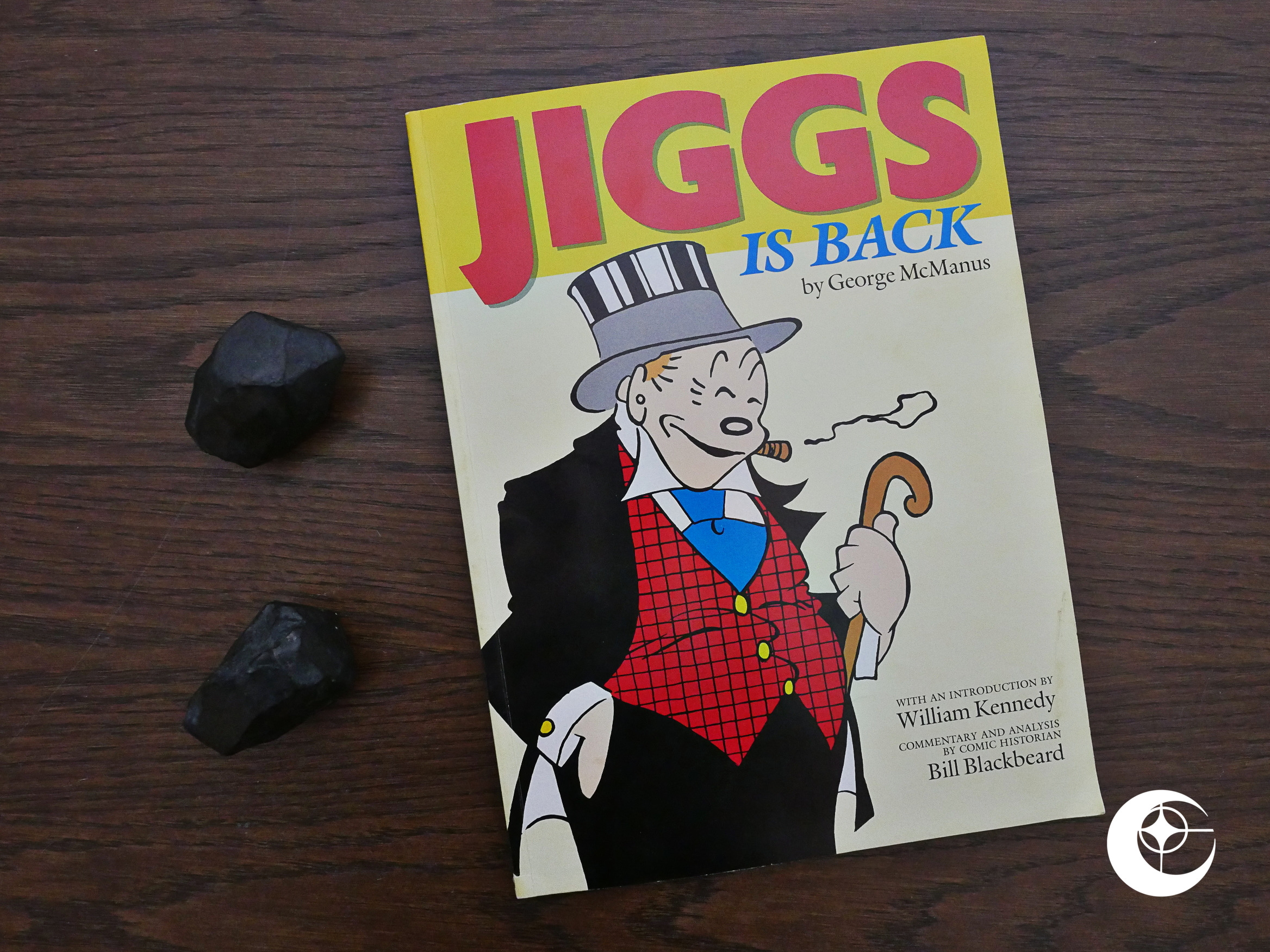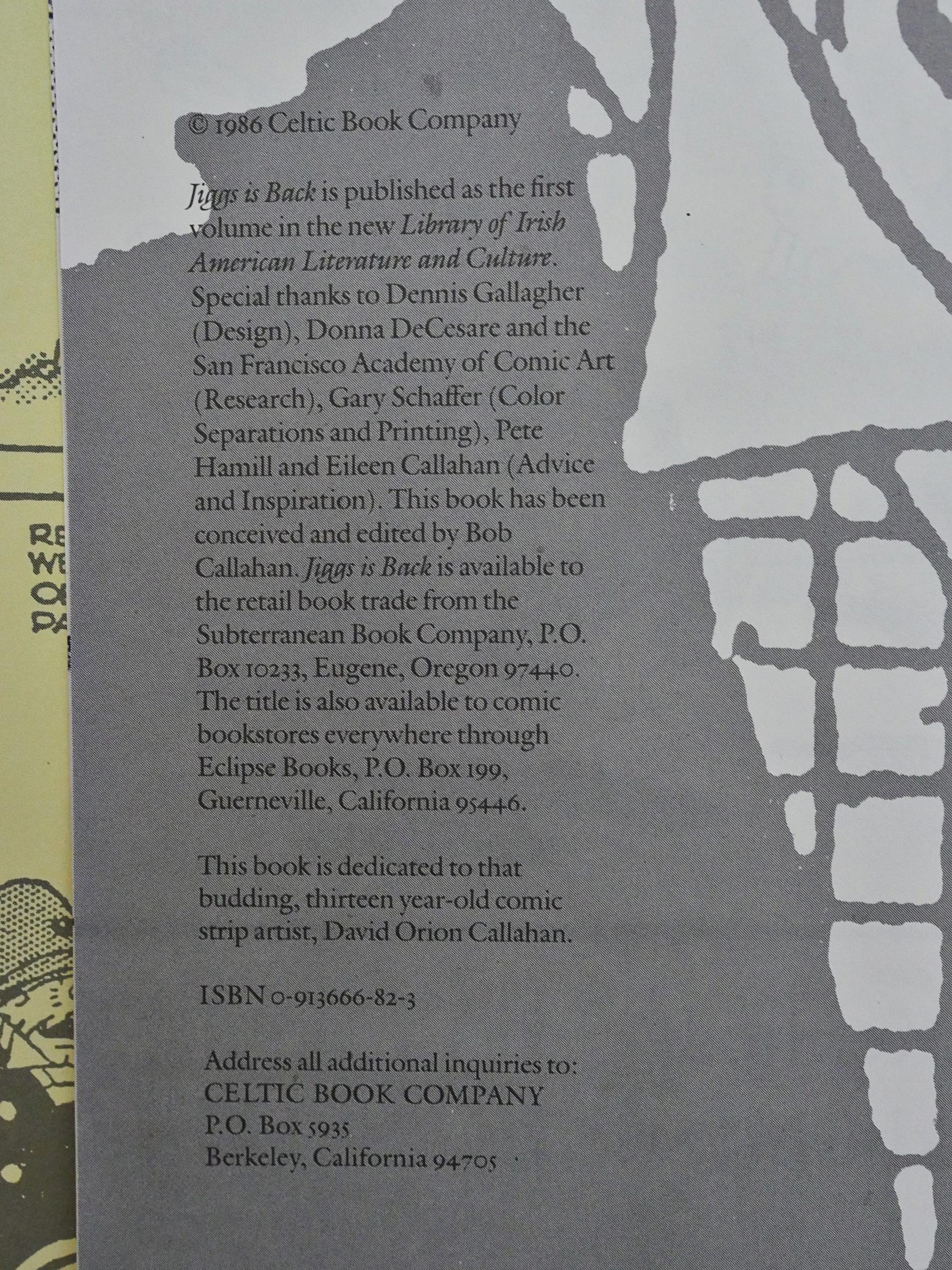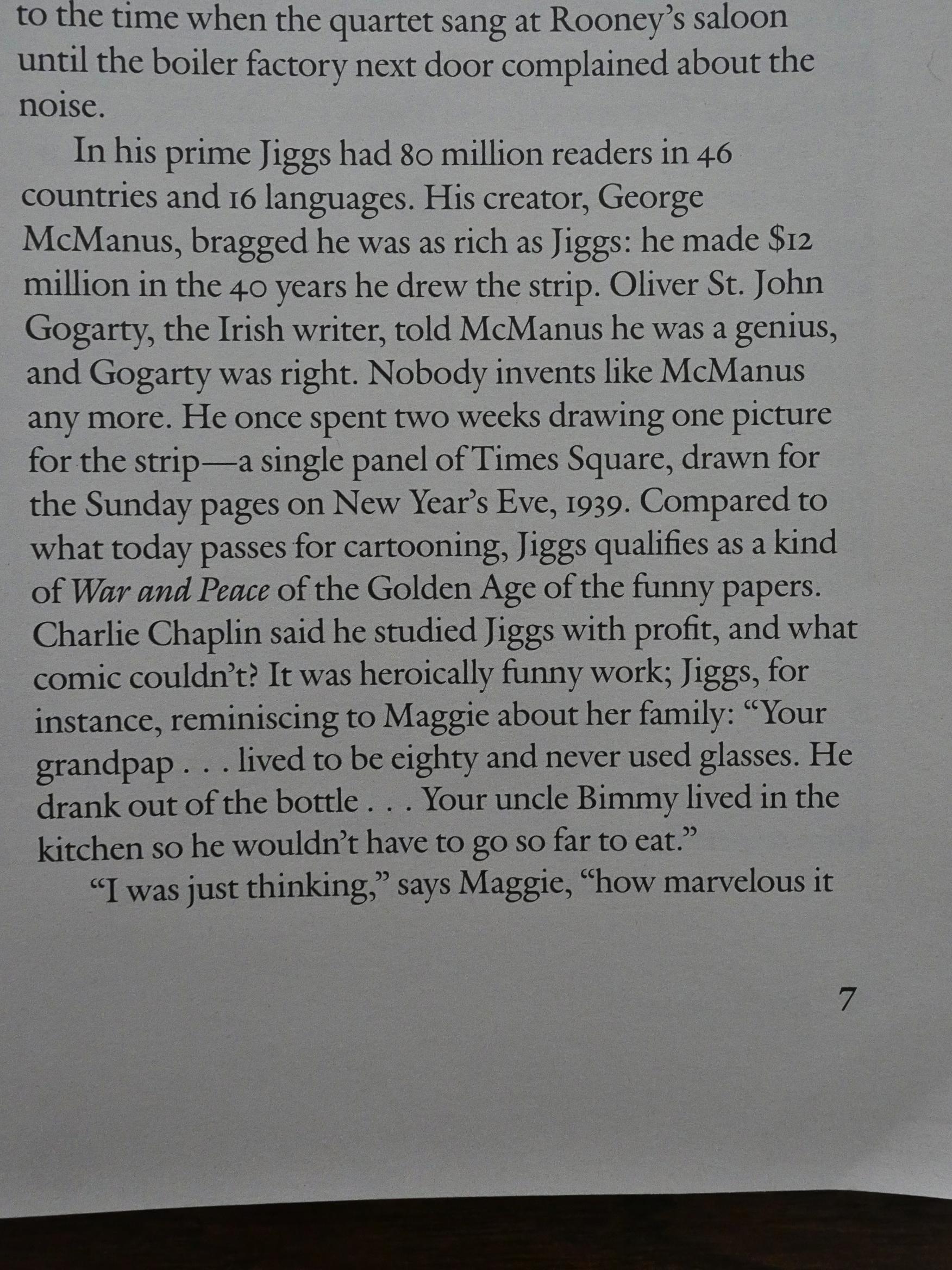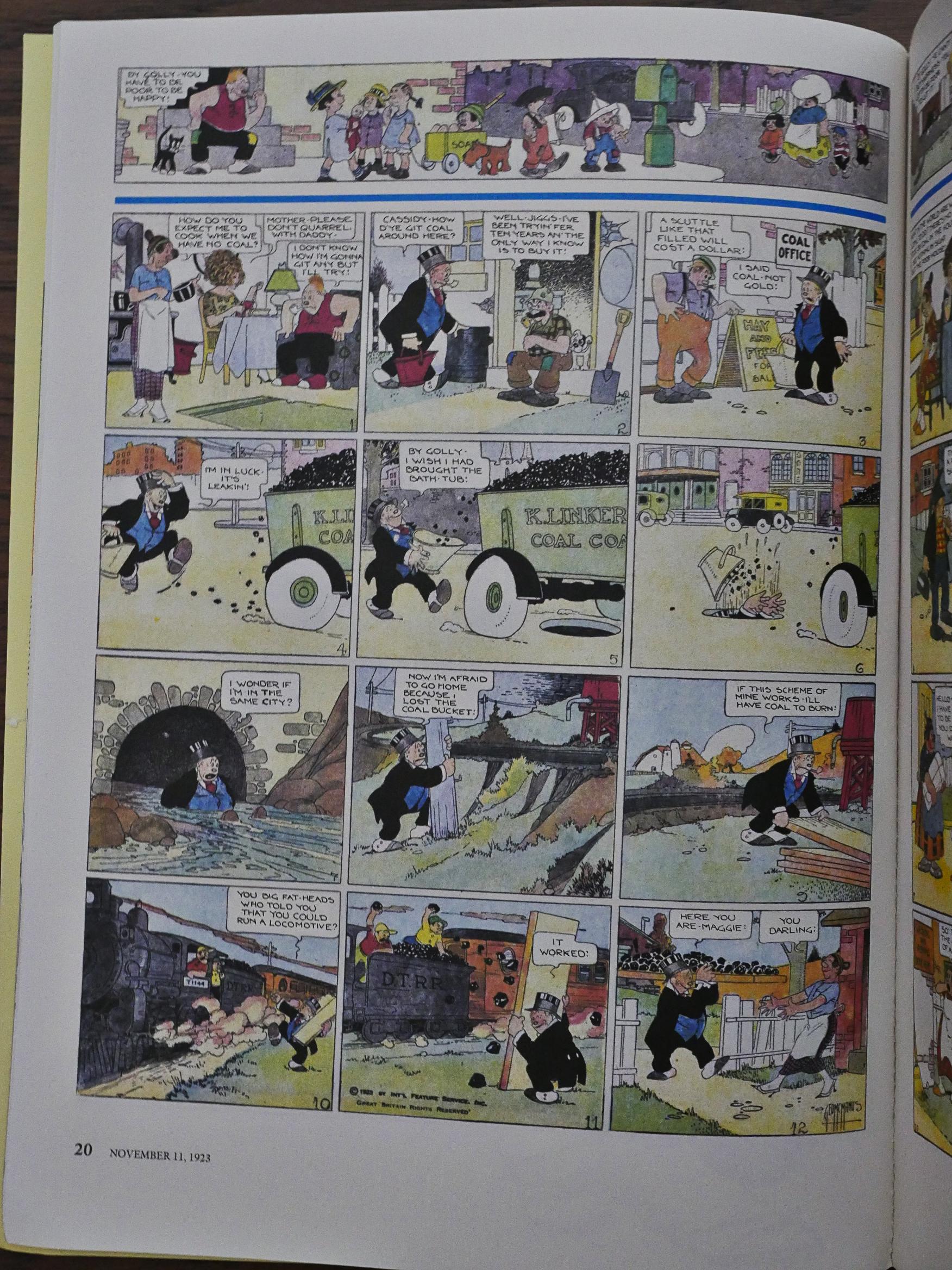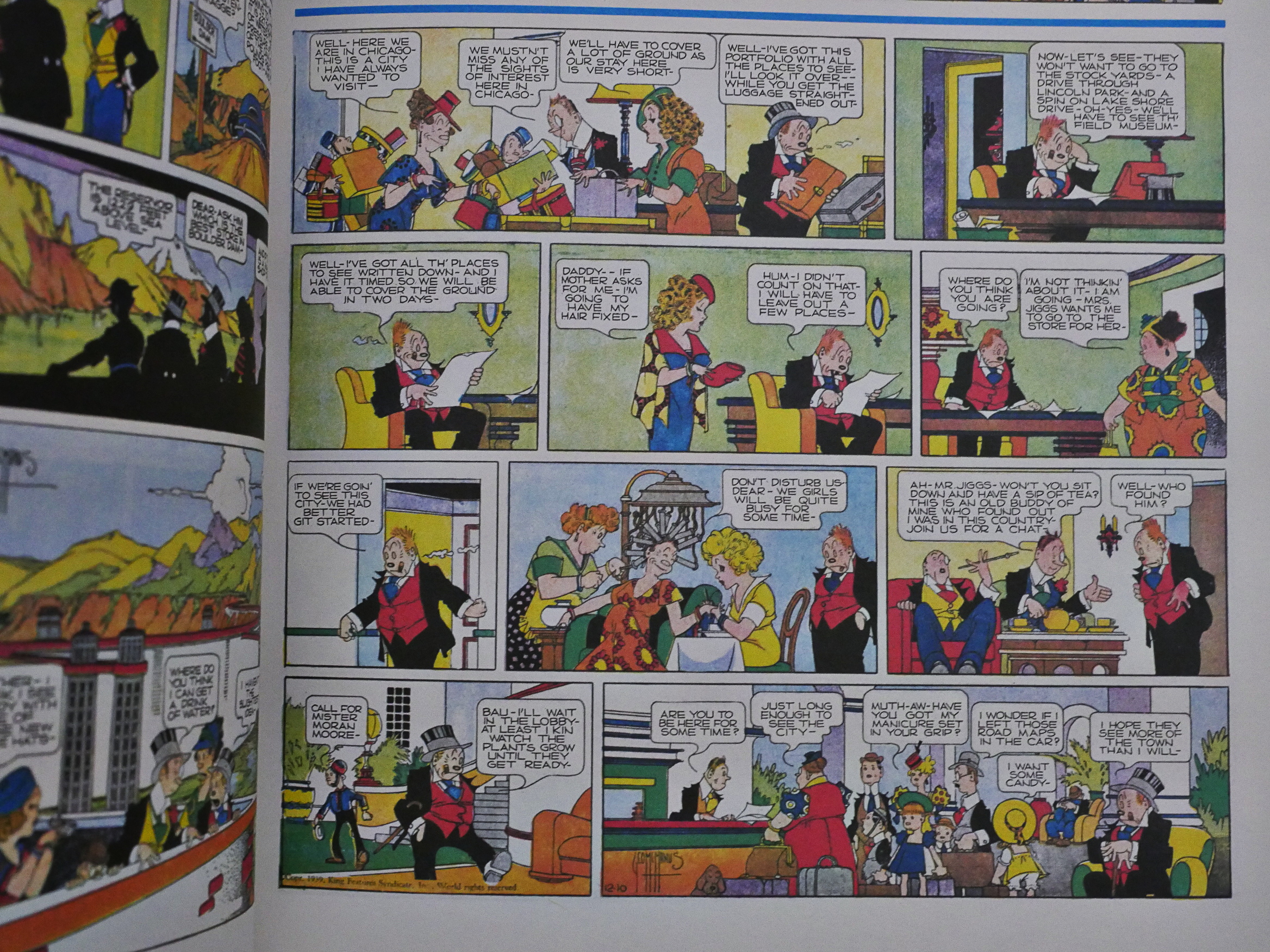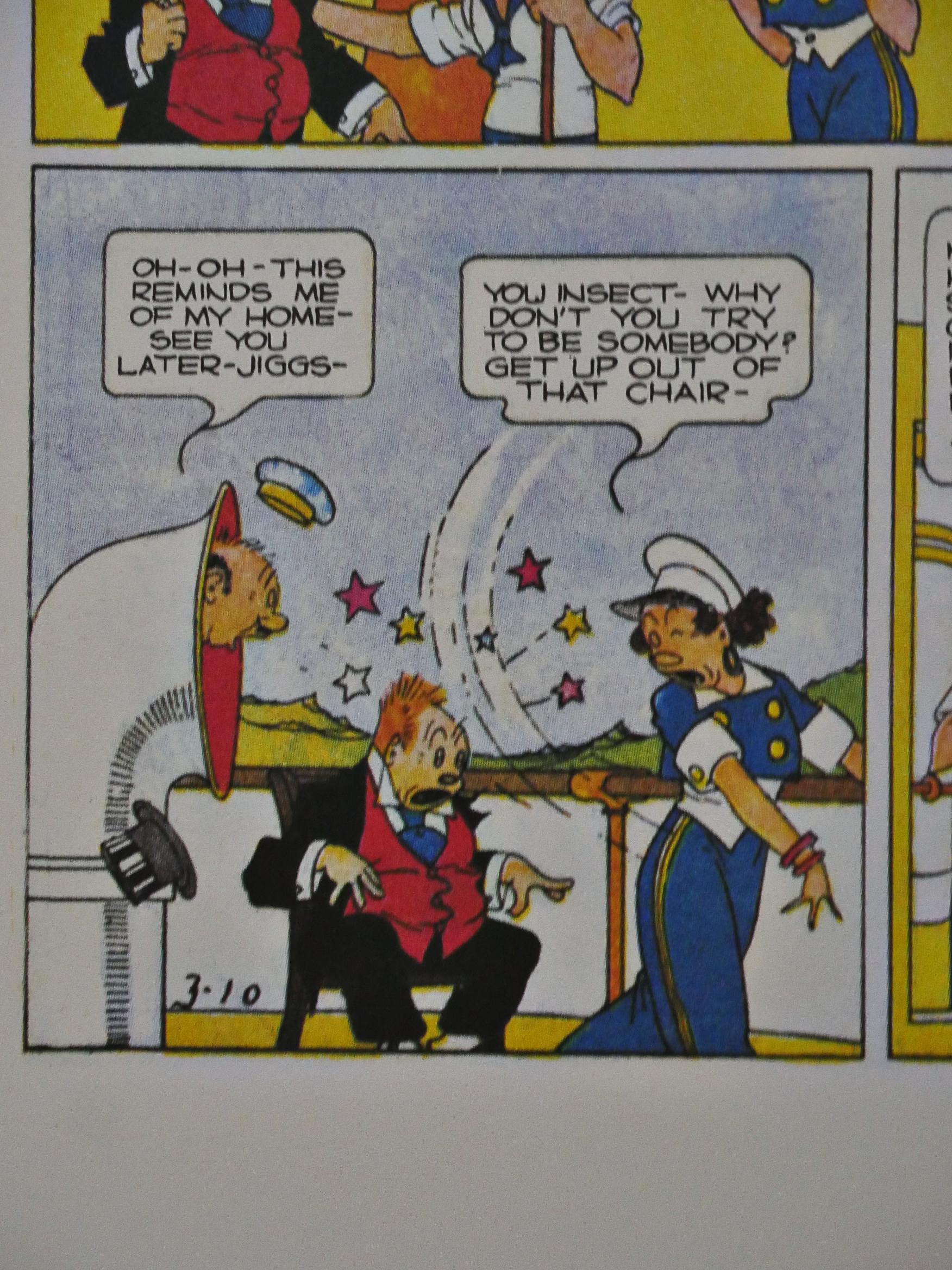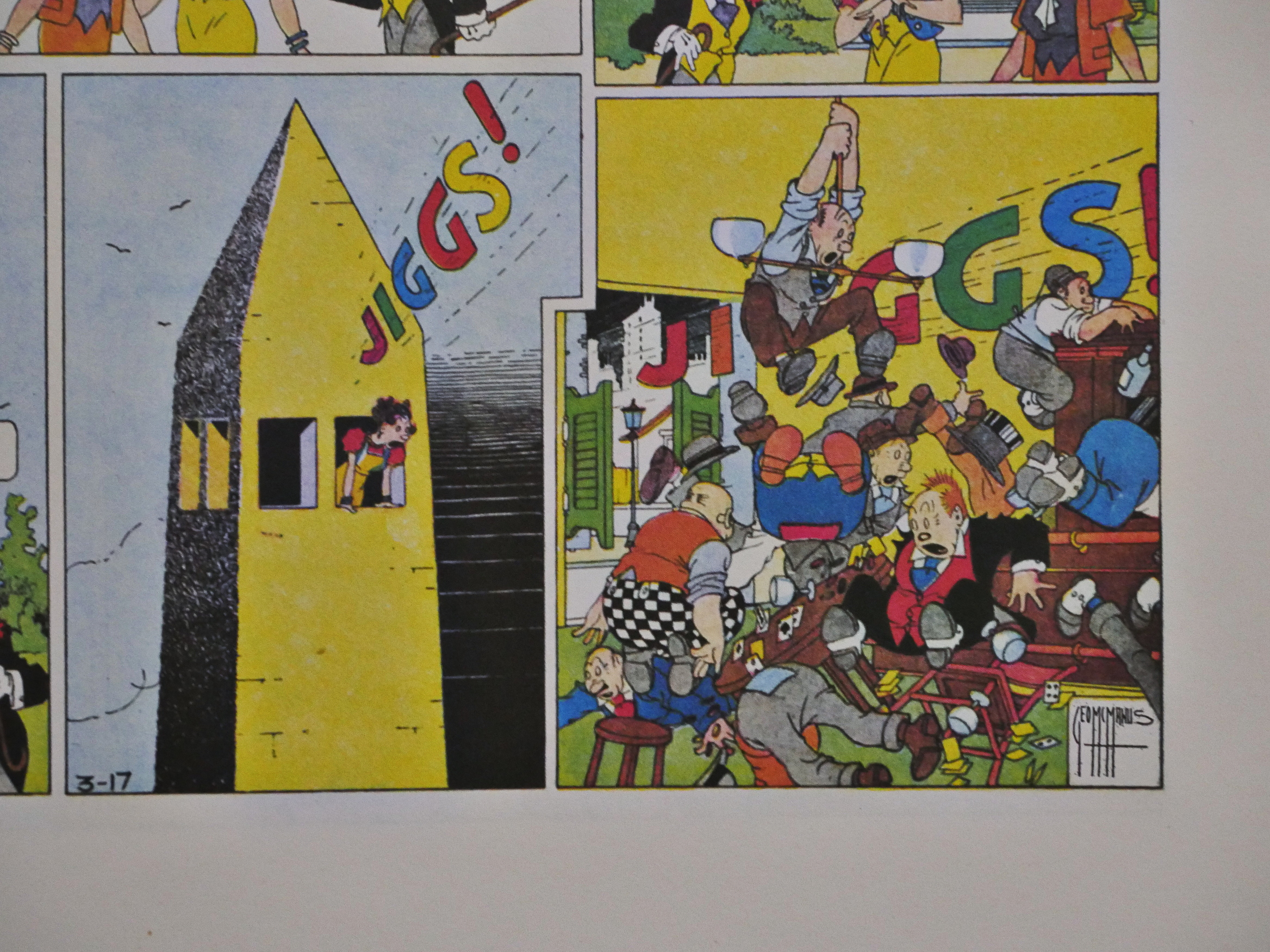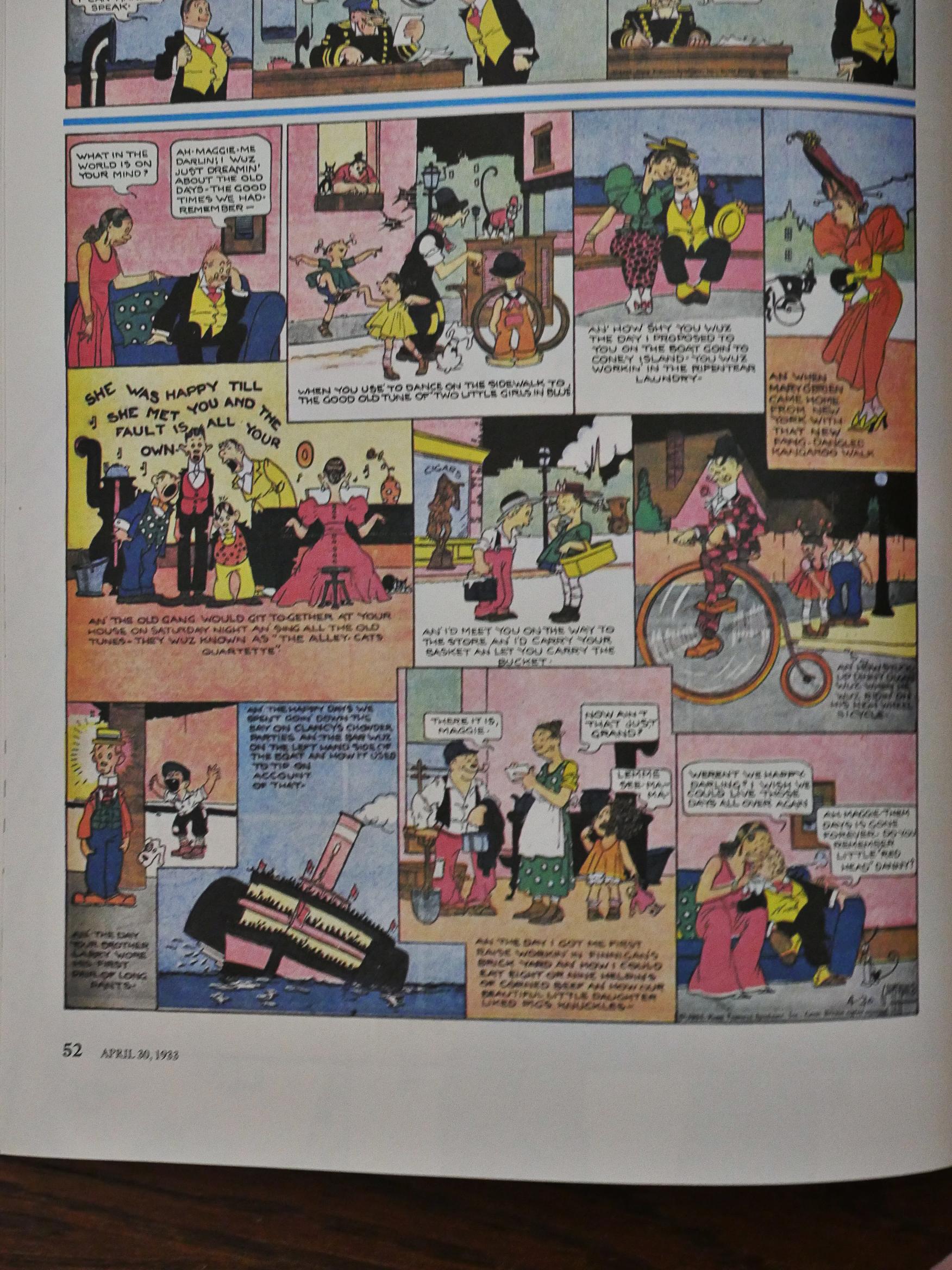Jiggs is Back (1986) #1 by George McManus et al.
This collection of Bringing Up Father newspapers strips wasn’t published by Eclipse Comics, but instead by something called the Celtic Book Company. They’ve published nothing else, so I’m going to venture a guess that it’s not a “real” publishing house, but somebody who put up some money, and got Eclipse Comics to do the leg work.
Eclipse is listed as the distributor to the comics speciality stores.
Heh. It’s the first volume in the Library of Irish American Literature and Culture… and also the last one.
Obvious joke is obvious.
Note that the sole copyright claim here is for Celtic, which, I guess, means that the comics themselves were in the public domain when Celtic published them. Or at least that’s perhaps what they believed? In which case it would make sense to create a shell company so that any copyright holders wouldn’t know who to sue.
Not that I would for a second believe that somebody would do something as unscrupulous! The very idea!
We get an introduction by William Kennedy, who seems to think that the Bringing Up Father strip was cancelled in 1954, when McManus died. It wasn’t, but continued for decades…
Unfortunately. A Norwegian weekly magazine carried the strip throughout my childhood, and I loathed it. The sheer repetition of Jiggs sneaking out and having fun and then his battle-axe wife Maggie throwing a vase at his head was stultifying.
And there’s still an annual being published each Xmas, but that one’s apparently now reprinting a chunk of the McManus 40s stuff, so it’s probably not as bad.
I think! Because this is a very frustrating book that doesn’t give the reader a feel, at all, for how this trip read at the time. I’ll get back to that in a moment…
Have you ever noticed that when somebody says “in fact” they’re going to come with an unsupported claim?
Anyway, another puzzling thing about this collection is that the words “Bringing”, “Up” and “Father” are never mentioned in that sequence. Which is weird for a Bringing Up Father reprint project. It’s not unusual to eschew the name of the series on the cover when doing reprints, because the syndicate has trademarked the name. (So we get “Krazy + Ignatz” for the Krazy Kat reprints and “Walt & Skeezix” for the Gasoline Alley reprints, and so on.) But to not mention the name at all? That’s some high-grade shadiness.
There are three sections of strips published in this book, and all of them are atypical. First we get a sequence from the 20s when the family is dirt poor (which is something that only lasted a few months, so it’s a break from the normal continuity). But these are very sweet strips, so I can see how the editors would gravitate towards them.
If you look at how these pages originally looked, you’ll see that they edited out the “Bringing Up Father” logo (and replaced it with a blue horizontal line), and on later pages they’ve also edited out “Snookums” logo for the strip that runs above the main bit, and replaced it with a red square.
Shady.
The artwork is reproduced crisply and very pleasantly. The pure-black and white lettering is almost supernaturally clear, and the colours are extremely nice for something that’s reprinted off of printed newspapers.
The second bulk of strips is a sequence from early 1940, where the family is going on a trip of the US. So it’s another untypical sequence where we don’t get to experience the nuts and bolts daily domestic strip that I believe that this really was.
McManus has his own style of storytelling that’s… er… well, I fell asleep while reading this book. Every page is a mini movie of sorts. After reading each one, you feel (if you’re me) that you’ve just digested an entire play or something. The pacing and dialogue are just so… dense.
All I remember from the later, non-McManus Bringing Up Father is the extreme amount of violence meted out by Maggie towards Jiggs, but in this book there’s only a single instance domestic abuse. Either that’s because McManus didn’t do that as much, or it’s because the editors picked some really non-representative strips.
Oh, I love this sequence above. The way Maggie’s shout bursts into that bar, causing havoc, with the letters behind the characters. It’s so stylish.
And, yes, McManus’ artwork is something to behold. His mixture of ultra-detailed objects and characters with plenty of negative space is very appealing.
The third and final selection of strips are all about Maggie and Jiggs reminiscing about their past, and these were published at a rate of a couple per year, apparently. But the editors collected them because of reasons. So, once again, not from the normal weekly grind of the strip.
Which makes this collection a frustrating read. As an introduction to McManus, it’s just plain weird. The editors have gone out or their ways to select strips that don’t show us the typical examples of the strip, and those are, after all, what made the strip popular. Instead we get, like, “holiday specials”, that would probably make sense if you had the context… which we don’t.
It reminds me of other reprint projects that start off with, say, collection all the Xmas sequences from a comic book. It just doesn’t work. While an Xmas sequence may work as a special event, if you’re not familiar with the milieu already, a special event just isn’t special.
But what did the critics think? Here’s RC Harvey from The Comics Journal #112:
Curiously, the brilliance displayed in this book’s technological achievement is not matched in the selection of strips it reproduces. Indeed, the book seems to suffer from a confusion Of purpose—or, perhaps, a pollution of purpose.
My guess is that when Bob Callahan, who conceived and edited the book, went to Blackbeard’s San Francisco Academy of Comic Art for help in selecting strips and for reproducible Sunday pages, he allowed the Academy’s curator to sway him from his purpose with an overweening enthusiasm for McManus as artist. As a result, McManus the humorist got lost. The humorist overlooked, the central theme of Father was neglected. And with that, Callahan’s purpose miscarried altogether.
This, it says in the fine print, is the first volume in the new Library of Irish American Literature and Culture. And Kennedy’s introduction picks up on this ostensible purpose, pointing to Father as representative of the almost universal immigrant experience in America—the ascent Out of the poverty of the old world into the relative prosperity of the new world. Indeed, as we shall see, Father virtually epitomized the consequences of this transformation. Blackbeard’s essay dwells somewhat on the same matters, but the content of the book does comparatively little to illustrate the prose exegesis of either Kennedy or Blackbeard.
And that is passing strange: one would have to work hard to avoid selecting Father strips that were not animated by the thematic formula that pervaded McManus’s 41-year stewardship of the strip. Callahan and company did not, of course, avoid that theme deliberately, so they have not failed altogether in presenting remnants of it. But the majority of the strips reprinted here have very little to do either with the immigrant experience or with Father as exemplar of life among the Irish nouveau riche.
Hey! I agree with something R. C. Harvey wrote! Has that ever happened before? I don’t think so!
To this day, Bringing Up Father hasn’t been given a substantial reprinting in the US, I think. IDW gave it a go almost a decade ago, but gave up after two volumes, apparently.

